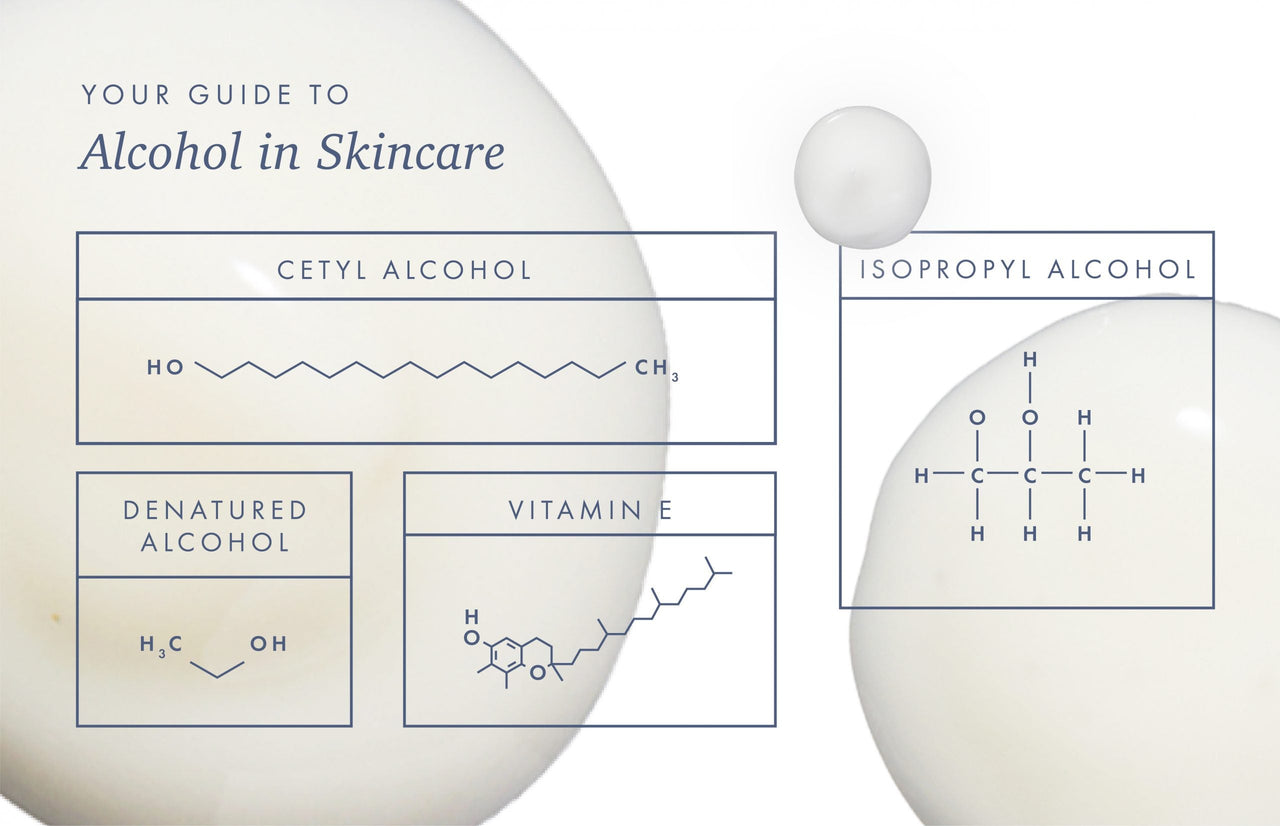Few ingredients spark as much confusion in skincare as alcohol. Some people fear it for being drying, others love it for its lightweight texture and quick absorption. But for Muslim consumers, the question is deeper:
👉 Which types of alcohol are halal, and which should be avoided?
The truth is not all alcohols are the same. Some are permissible, while others may be considered haram depending on their source and purpose. Here’s the full breakdown.
Why Alcohol Is Used in Skincare
Alcohols play different roles in formulations:
-
Solvent: Helps dissolve active ingredients.
-
Preservative booster: Enhances shelf stability.
-
Texture enhancer: Makes creams lighter and serums absorb quickly.
-
Barrier support: Some alcohols even help protect and soften the skin.
Types of Alcohol in Skincare
1. Simple / Volatile Alcohols
Examples: Ethanol, Denatured Alcohol, Isopropyl Alcohol
-
Pros: Quick-drying, helps with penetration of actives.
-
Cons: Can be harsh, drying, and irritating, especially for sensitive skin.
-
Halal status:
-
If ethanol is produced by fermentation for intoxication, it’s haram.
-
If produced synthetically or through a non-intoxicating process, some scholars permit it.
-
-
Purelab stance: We avoid volatile alcohols to respect both skin health and halal clarity.
2. Fatty Alcohols
Examples: Cetyl Alcohol, Stearyl Alcohol, Cetearyl Alcohol, Behenyl Alcohol
-
Pros: Derived from plant oils or synthetic sources, these are emollients—they soften, hydrate, and support the skin barrier.
-
Cons: None significant; generally safe and non-irritating.
-
Halal status:
-
Permissible if derived from halal plant sources (coconut, palm, etc.).
-
Avoid if derived from animal fats that are not halal-certified.
-
3. Sugar & Polyhydric Alcohols
Examples: Glycerin, Sorbitol, Propylene Glycol, Butylene Glycol
-
Pros: Humectants that attract water into the skin, providing deep hydration.
-
Cons: Very low risk of irritation, usually well-tolerated.
-
Halal status:
-
Permissible when derived from plants or synthetically.
-
Glycerin must be plant-derived, since it can also come from animal fats.
-
Halal Considerations Beyond the Label
Even if the type of alcohol is technically halal, cross-contamination during production can be an issue. This is why halal certification from bodies like JAKIM, IFANCA, or MUI matters—it verifies not just the ingredient but the full process.
At Purelab Care, every alcohol-containing raw material is third-party validated for halal compliance, ensuring clarity and transparency.
Quick Guide: Halal-Friendly vs. Avoid
| Halal-Friendly | Avoid / Questionable |
|---|---|
| Cetyl Alcohol, Stearyl Alcohol, Cetearyl Alcohol | Ethanol (fermentation-derived for intoxication) |
| Behenyl Alcohol | Denatured Alcohol (SD Alcohol) |
| Glycerin (plant-based) | Isopropyl Alcohol |
| Sorbitol, Propylene Glycol, Butylene Glycol | Mixed-source Glycerin (animal fat) |
✅ Alcohol in Skincare: Frequently Asked Questions
1. Is ethanol always haram in skincare?
Yes, if derived through fermentation for intoxication purposes, ethanol is haram. If produced synthetically and non-intoxicating, some scholars permit it—but many halal brands avoid it to prevent doubt.
2. Are all alcohols drying to the skin?
No. Only volatile alcohols (like ethanol or isopropyl) can strip the skin. Fatty alcohols and glycols are hydrating and barrier-supporting.
3. Is glycerin halal?
Yes, if derived from plants or synthetic sources. Glycerin from non-halal animal fat is haram.
4. Why do some halal-certified products still contain alcohol?
Because not all alcohols are haram. Fatty alcohols (cetyl, stearyl, cetearyl) and glycols are halal-compliant and safe.
5. How can I tell if the alcohol in my product is halal?
Check the INCI list for the type of alcohol and look for halal certification. Purelab Care products undergo third-party halal verification to remove all doubt.
The Bottom Line
-
Not all alcohols in skincare are harmful—or haram.
-
Fatty alcohols and glycols are halal-friendly, skin-safe, and even nourishing.
-
Ethanol and denatured alcohols are best avoided for both halal clarity and skin health.
At Purelab Care, we craft every formula with halal integrity and skin science in mind—avoiding questionable alcohols and embracing only those that are proven safe, ethical, and effective.



